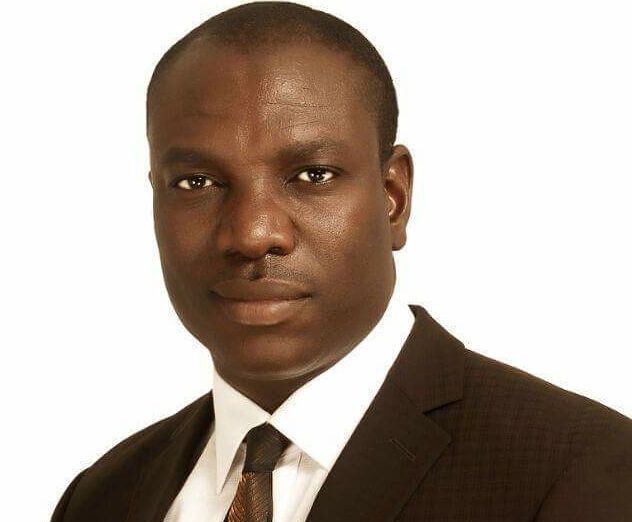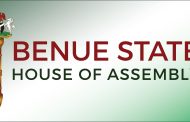He is Dr Chris Kwaja. He is a signifier of the paradox of national regeneration in an era of decay and collapse. In other words, he is in the club of those speaking to national regeneration in Nigeria in spite of a deep crisis of the state. There are many of them, with some successfully running globalizing Nigerian NGOs from the global South, others enacting the Diaspora as a national power resource, yet some others emerging high in INGO technocracy while another batch are neck deep in permanent agitation. In his own case, he is better known as an activist intellectual of peace and security, emerging a leading voice thereto.
His birthday last week provides an opportunity to privilege one of his exertions for the reason of the nobility behind it. This is more so that there was no party or any drinks to the birthday, something that the mood of the country does not permit of any serious citizen at the moment when so many are languishing in kidnappers dens across the country, among other expressions of generalised insecurity. In fact, one out of seven kidnapped women died Tuesday, May 25th, 2021 between Kaduna and Zaria after 31 days in captivity. It took an overstressed family time to raise the ransom. By the time they got somewhere close to the negotiated amount, malaria or something of that nature had taken a toll on her. Nigeria failed her and the six or so others still there might suffer the same fate if ransom is not paid. This is the context in which no birthday celebrations would be possible for many now.

A beneficiary institution
But that doesn’t stop us from reflecting on Chris Kwaja’s dare. Although Dr. Kwaja cannot be spoken of as being rich in financial or material terms, he runs a funding support for PhD students. It is not something he publicises but Intervention got to know about it. Gradually, gradually, a few ideas about it could be extracted from him over time.
There is no qualification like the PhD. PhD holders are an enormously powerful club of people. Their power lies in the training and capacity to signify the world or any aspect of it any of them chooses. As every such signification carry with it a prescription, PhD holders serving as researchers or experts end up being the power behind most policies, especially in foreign and security policy, public health, international organisations, global trade, science and technology, political parties, think tanking, conflict instigation and management, energy, climate change, power politics and so on. It is a philosophic as well as craft capacity which very, very few people outside that club can boast of or deploy in a manner that testifies to the elevated thinking that PhD training obliges.
However, acquiring a PhD is a horrible experience. It can be called an official permission to practice madness which a PhD, properly speaking, is all about. As Professor Isawa Elaigwu once said, it is easy to start a PhD but it is impossible to know where it will end. As a PhD holder from Stanford University, he must know what he is saying regarding the subject.

The second beneficiary institution
So, many people love to get into it. And the crowd claps for them when they do so. In the Western world, there is a society wide consciousness that funding a PhD is a tough challenge. So, the society makes some arrangement by which a PhD student or a potential one gets assisted financially. In much of Africa and especially in Nigeria, the average PhD student is on his or her own. S/he even pays school fees, a typical Nigerian anomaly. Officially, PhD students pay school fees everywhere but they hardly do because, somehow, it is underwritten by some funding arrangement or another. Above all, in most universities, enrollment into the PhD is academic employment. All these are strange in Nigeria where very few rich men or institutions have any such provisions.
This explains the novelty of an academic such as Dr. Kwaja setting aside no matter how meagre an amount from his earnings to assist all deserving candidates. How did he come about the idea at a time many are stealing the country blind, Intervention wanted to know?
The snippets suggest that the idea is a product of his own experience. Although he got a United Nations University for Peace Doctoral research award which made it easy for him to undertake his research (including foreign trips), that is not what many others ever got or would get. Under such circumstances, they are either not able to complete their programme or take a longer time due to financial difficulties, a reality to which he is stepping in but in his own way.
If a date could be put to it, then that should be 2014 after defending his thesis. There appeared to be a personal decision thereafter to devote some amount towards supporting doctoral candidates on the verge of data collection or about rounding off their work with a stipend from his salary and other works in which he might be involved. Again, it was not the amount involved. It is the statement or public spiritedness involved.
But then, who gets it and on which criteria? At the moment, one has to be a doctoral student working on issues relating to peace, security and conflict at the University of Jos from where Dr Kwaja obtained his own PhD or doing same at the Modibbo Adama University of Technology in Yola where he teaches. A rare case outside these institutions could arise but these are the target schools/beneficiaries at the moment. The number of beneficiaries is being kept confidential for now so that there is no floodgate of requests. There is no illusion that this is going to be uncomplicated but the spirit behind the practice is what one gets as the guarantor of continuity of the project.
The message in all these is that Nigeria is not in disarray because of relative paucity of financial resources. It is because of lack of know-how in organising a qualitative society by those who have seized the political space. In fact, former Head of State, General Yakubu Gowon was and is still right in the statement attributed to him about money not being Nigeria’s problem but how to spend it. There is so much money for individuals to steal and be hailed for that but not enough to run qualitative universities or functional health care delivery for the people or to guaranty quality drinking water.
In this one-man PhD finding scheme, therefore, is a leadership message from one Nigerian. By leadership here is not meant political office but the leader as a developer and practitioner of one model or the other of society. In that case, all who, like Kwaja, are doing something on this domain, are leaders.




























